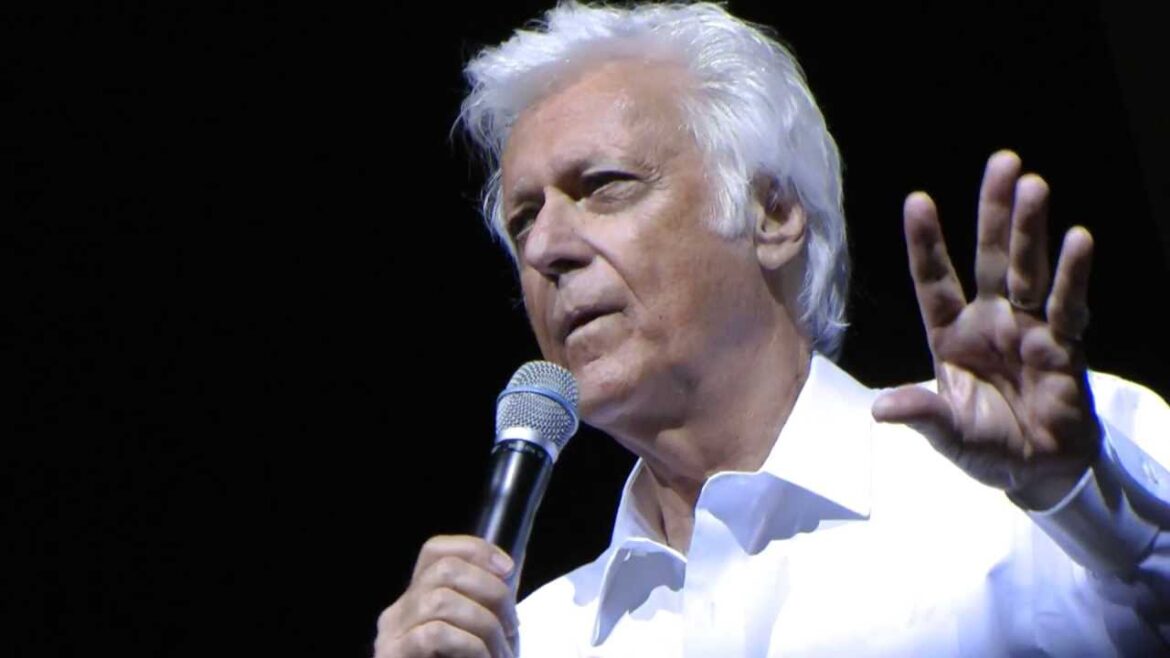
Jack Jones, born John Allan Jones on January 14, 1938, was an American singer and actor who left an indelible mark on the music and entertainment industry.
Known for his warm voice, charismatic performances, and unique ability to merge pop, jazz, and big-band influences, Jack Jones earned acclaim as one of the last great voices in straight-pop singing.
His talent and dedication brought him two Grammy Awards, five Grammy nominations, and an enduring place in the hearts of audiences worldwide. Perhaps most widely recognized for singing the theme song for the beloved television series The Love Boat, Jones’s career spanned over six decades, through which he continued to evolve artistically while staying true to his pop and jazz roots.
Early Life and Musical Beginnings
Jack Jones was born in Hollywood, California, into an entertainment-oriented family. His father, Allan Jones, was a popular singer and actor, perhaps best known for his performance in Show Boat (1936), while his mother, Irene Hervey, was an actress with a successful career in television and film. Growing up in this creative atmosphere, Jones was exposed to the music and film industries from an early age. His father’s career undoubtedly influenced young Jack, who developed a love for music and singing, following in his father’s footsteps.
Jones attended University High School in Los Angeles, where his talent in singing began to shine. His passion for music led him to pursue professional singing, with his first opportunities in the music industry coming in the late 1950s. However, his big break came in the early 1960s when he signed with Kapp Records. With his first albums, Jones quickly became known for his sophisticated vocal style, which bridged the gap between traditional pop and jazz-influenced pop, setting him apart from other singers of the time.
Rise to Fame and Grammy Success
Jack Jones’s early years in the music industry brought him immediate success. His first Grammy Award came in 1962 for Lollipops and Roses, written by Tony Velona. The song, emblematic of his lush and romantic singing style, captivated audiences and showcased his ability to interpret lyrics with emotional depth and nuance. The following year, he won his second Grammy for Wives and Lovers, a song written by Burt Bacharach and Hal David. This song further solidified his reputation as a leading voice in pop music, as it became one of his signature songs and remains a classic.
During this period, Jack Jones worked with top-notch arrangers and musicians, including the renowned Nelson Riddle, Don Costa, and Marty Paich. These collaborations allowed him to experiment with complex musical arrangements that complemented his vocals, helping him carve out a unique place in the pop-jazz genre.
His vocal style was smooth, yet powerful, effortlessly adapting to the grand orchestral arrangements that often accompanied him. This versatility allowed him to navigate different genres within popular music, lending his voice to both contemporary pop and jazz standards. His approach and distinctive tone were often compared to the classic stylings of Frank Sinatra and Mel Tormé, but Jones’s voice remained his own, marked by his ability to evoke tenderness and sophistication simultaneously.
The Love Boat Theme Song and Cultural Impact
One of Jack Jones‘s most iconic contributions to popular culture was his performance of The Love Boat theme song. The show aired from 1977 to 1986 and became a cultural phenomenon, with the theme song being instantly recognizable. His smooth, optimistic delivery of the lyrics became synonymous with the escapism and romance associated with the series, adding to its allure.
For Jack Jones, this song brought him to the attention of a whole new audience, including younger viewers who associated him with the show’s joyous, carefree atmosphere. The song’s catchy melody and Jones’s charming voice made it one of the most memorable television theme songs of its time, securing him a place in television history.
The theme song’s popularity also boosted Jones’s visibility, allowing him to perform on numerous television shows, including The Tonight Show, The Dean Martin Show, and The Ed Sullivan Show. These appearances contributed to his image as a sophisticated yet approachable entertainer, expanding his audience beyond music to the realm of television. The theme song for The Love Boat eventually became a trademark, a piece of music that would follow him throughout his career.
Versatility and Exploration in Jazz and Pop
Throughout the years, Jones’s musical style evolved, yet he always remained grounded in pop and jazz. While he was primarily known as a pop singer, he often experimented with jazz arrangements, particularly in the big-band and swing genres. His forays into jazz were often highlighted in live performances where he brought a unique energy and respect for the genre. His vocal style, smooth yet agile, allowed him to handle the demands of jazz singing with ease, even as he continued to remain committed to traditional pop.
Jack Jones also recorded numerous albums throughout his career that showcased his versatility. His discography includes The Impossible Dream (1966), a record that further showcased his ability to interpret songs with a theatrical flair. The album includes the titular song, “The Impossible Dream (The Quest),” which became another one of his most enduring recordings. His ability to interpret both grand, inspirational pieces and intimate, romantic ballads added to his wide appeal, making his music resonate with a broad audience.
.
.
Despite his deep-rooted connection to traditional pop, Jack Jones did not shy away from contemporary music. He occasionally covered songs by more modern artists, infusing them with his classic sound. This willingness to adapt while maintaining his musical identity kept his work relevant across generations, and he continued to attract new listeners as he evolved. He often cited his passion for singing and his dedication to the craft as the driving forces behind his adaptability.
Later Career and Legacy
In his later career, Jack Jones continued to perform live, and he became a cherished figure on the cabaret and Las Vegas circuits, where audiences appreciated his enduring talent and ability to bring songs to life. He also took on acting roles, including parts in musical theater, which showcased his talent as a performer beyond singing. His lifelong dedication to entertaining people kept him active in the industry even as trends shifted, demonstrating his commitment to his craft.
Throughout his career, Jones’s commitment to high-quality music and his ability to connect with audiences set him apart. His voice was described as warm and tender, with a versatility that allowed him to perform both heartfelt ballads and lively jazz numbers. He received numerous accolades in addition to his Grammy Awards, including honors from the American Society of Composers, Authors, and Publishers (ASCAP) and a star on the Hollywood Walk of Fame. These awards reflect his contributions to music and the high regard in which he was held by peers and fans alike.
Jack Jones’s influence extended beyond his recordings and performances. As one of the last traditional pop singers of his era, he helped to bridge the gap between the classic crooner era and the contemporary pop world, blending these influences into a sound that was distinctly his own. His smooth and charming performances have often been compared to the styles of classic pop and jazz legends, but his commitment to his unique vocal identity set him apart. For many, he represented an era of music that valued craftsmanship, elegance, and the timeless appeal of a beautiful voice.
.

.
Personal Life and Reflections
Jack Jones’s life outside of music also added to his public persona. Married six times, his personal life was often a topic of public interest. Despite the ups and downs, Jones managed to maintain a level of grace and professionalism that endeared him to fans. He spoke often about his passion for music, crediting his career longevity to his genuine love for singing and performing. Even in his later years, he remained committed to music, frequently performing live, recording new material, and connecting with fans.
Jack Jones’s legacy is one of dedication, elegance, and enduring charm. His music continues to resonate with audiences today, reminding listeners of a time when pop and jazz were closely intertwined. His ability to capture emotions in his performances and his smooth, romantic vocal style are often cited as key elements of his appeal, ensuring that his music remains relevant even as musical trends evolve.
Conclusion
Jack Jones’s life and career reflect a deep love for music and a dedication to the art of singing. As a singer and entertainer, he managed to bridge the worlds of pop, jazz, and television, bringing his distinctive style to audiences across multiple generations. From his Grammy-winning performances in the 1960s to his iconic rendition of The Love Boat theme song, Jones demonstrated a rare versatility and an unwavering commitment to his craft.
His influence on traditional pop music, coupled with his enduring popularity, solidifies his place as a legend in American music history. His work not only shaped the pop and jazz landscapes of his time but continues to inspire fans and musicians who appreciate the timeless quality of his music.
Jack Jones died from leukemia at Eisenhower Medical Center in Rancho Mirage on October 23, 2024, at the age of 86.
Check out Jack Jones on Amazon.
.

